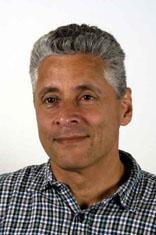Report of Howard Nicholas Lecture
Howard Nicholas, professor at the ISS in The Hague, gave a lecture on the real causes of the crisis at CREA. Here you can find the audio files of his lecture, and the slides he showed to illustrate his talk.

Howard Nicholas first described how the current crisis has evolved, since the start in 2007. He did this with the help of graphs and statistics that you can find back in the slideshow.
He then sketched what explanations for the crisis the mainstream neoliberal/neoclassical economists and politicians have been giving, and how they are not able to give coherent explanations, or make sudden u-turns without ever explaining why they were saying the opposite before the crisis. Then he pointed at some factors that are main real causes (and odly enough never appear in the mainstream explanations). One of the most important differences between mainstream economists and many marxists, is that the first ones always speak of ‘shocks’ when crisis happens, as if it is some external exeption to the – further always stable – rule. Leftist economists analyse from the concept of cyclical developments; the continuous reemergence of crises and recoveries. A large part of the end of the lecture was about the different theories about long (or short) cycles, like the K-Cycle (form Kondratief, the Russian economist who worked them out). And we ended with some predictions for the near future (one day some kind of recovery will set in, but first it is going to get even worse. We haven’t reached the bottom of this K-winter yet, the US-economy will swing back down by the end of the year and China is in growing trouble too…)
Questions after the lecture were partly about details of his lecture, but also about more political content: if the cycles are considered to be some given thing that no political movement or decision can change, and about Howard’s estimate of the European Union.
The audio files have been rougly cut into parts of 20-30 minutes, to keep the size limited. Otherwise our server would get bad. The quality of the sound is good as for the words of the speaker. The questions and remarks from the audience are less wel hearable, as it is registered by the microfone of the speaker. But we hope it is good enough to follow the debate.
To prevent anything to get lost there is some overlap in the files. At the end and beginning of each audio-file you will hear things double.
Audiofiles:
Part one
{mp3remote}http://globalinfo.nl/images/mp3/rwe-1.mp3{/mp3remote}
Part two
{mp3remote}http://globalinfo.nl/images/mp3/rwe_2echt.mp3{/mp3remote}
Final three
{mp3remote}http://globalinfo.nl/images/mp3/rwe_3.mp3{/mp3remote}
Part four
{mp3remote}http://globalinfo.nl/images/mp3/rwe_4echt.mp3{/mp3remote}
Final part
{mp3remote}http://globalinfo.nl/images/mp3/rwe_5.mp3{/mp3remote}
(Also, the slides and audiofiles from his lecture for RWE in 2008 can be found here)